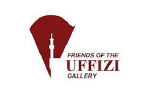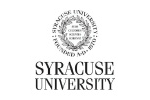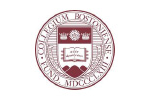



ONLINE HISTORY COURSE
“When the Saints Come Marching In: Medical Saints and the Diseases They Cure”
LIVE HISTORY COURSE with Dr. Jeremy Wasser
Dates: May 8, May 15, May 22
Schedule: Mondays
Time: 2:00 – 3:15pm ET | 11:00am – 12:15pm PT |
7:00 – 8:15pm London
Contact Hours: 4.5 Hours
ONLINE HISTORY COURSE
“When the Saints Come Marching In: Medical Saints and the Diseases They Cure”
Course Description:
It’s 1348 in Florence and the Black Death ravages the city and people are dying like flies. There is little the plague doctors can do and the priests seem to be helpless, in the face of an epidemic everyone saw as the wrath of God. You’re desperately afraid and don’t want to die. So, who you gonna call?
Reliance on the supernatural when dealing with disease was common in the Middle Ages and the Renaissance. Physicians and other healers at this time were wedded to the concept of the Four Humors—blood, phlegm, yellow bile, and black bile. Promulgated by Hippocrates of Cos (c. 5th century BCE) and formalized by the 2nd century CE Roman physician, Galen, the proper balance of the Four Humors determined health and disease. Humoralism was medical dogma until its replacement by the germ theory in the middle to late 19th century. This erroneous premise resulted in a dearth of truly effective therapies for illness or injuries. Instead, people appealed to an amazingly large array of saints and to members of the Holy Family for intervention and help in recovery or survival.
Join physiologist and medical historian, Dr. Jeremy Wasser, for a tour of the sacred art representing the medical saints. Learn which saint was beneficial for which disease and why and how they were depicted in paintings, frescos, and sculpture. There truly was a saint for every body part and every ailment. The reasons for their medical roles and associations make for a fascinating, if sometimes gruesome tale.
Instructor:
Jeremy Wasser, Ph.D. is an Associate Professor of Physiology at Texas A&M University. Dr. Wasser serves as the program leader for study abroad programs in Germany, focused on the history of medicine, providing future doctors and biomedical science researchers with a foundation in physiology and the medical humanities. Along with his scientific publications he has written and lectured on the culture of disease, the history of public health and health policy, the history of human experimentation, and the role of physiological education in contemplative practices. Additionally, Wasser’s training in opera and theatre inform the unique personas that he creates for lectures in the history of medicine and performances related to science and storytelling.
Virtual Classroom: Full access to an online educational platform with discussion forum, videos of recordings, syllabus, and reading list.
Location: LIVE INTERACTIVE ON-LINE HISTORY LECTURES
Optional Readings:
Readings to be provided to students in PDF format prior to the beginning of course.
Complete syllabus will be provided upon registration.
LECTURE 1 – HOLY MDs
– Monday, May 8
There are an incredible number of Christian saints associated with medicine, healing, and disease. The reason for this and the rationale behind having medical saints in the first place will be our starting point for this first lecture. We will then focus on the saints who are identified as actually having been physicians. Starting with the patron saints of the medical profession, Cosmas and Damian, we will explore the iconography and art associated with them, especially the many representations of their miraculous successful leg transplant surgery. Moving on to the Three Holy Doctors (Marius and his two sons, Abachum and Audifax) we will consider their medical credentials and histories as well as those of St. Luke the Evangelist and other less well-known saints who practiced the healing arts in life and went on to sainthood after their deaths. How much of the skills of these physicians can be associated with their medical knowledge and how much with their holiness and martyrdoms will be part of our analysis.
LECTURE 2 – A SAINT FOR EVERY BODY PART
– Monday, May 15
In this lecture we will turn to saints associated with specific parts of the human anatomy and specific illnesses. There really is a saint for every body part and every conceivable ailment Included in our discussion will be St. Apollonia, the patron saint of dentistry, St. Fiacre, the patron saint of hemorrhoid sufferers, and St. Vitus, the saint for “St. Vitus Dance” (Sydenham chorea). We will also explore the legends and miracles of the “14 Emergency Helpers” (die Vierzehn Nothelfer) and many others. We will examine the stories underlying the associations with “their” anatomical structure or disease and survey the ways in which they were depicted in medieval and Renaissance art. We will also delve into what was known about these diseases by medical professionals of the period and what secular therapies were used along with the spiritual therapy of appealing to the appropriate saint.
LECTURE 3 – SAINTS FOR THE TIME OF PLAGUE
– Monday, May 22
There are hundreds of saints associated with the bubonic plague and even more if we include the other epidemic diseases that ravaged Europe in the Middle Ages and Early Modern Period. In this lecture we will take a deep dive into the stories and iconography of the saints appealed to for relief from the Black Death such as St. Roch and St. Sebastian. Other less well-known plague saints will also get their turn in the spotlight. We will then consider the saints associated with other epidemic diseases of this time such as ergotism (St. Anthony’s Fire), smallpox, and leprosy. As always we will explore these saints and these diseases through the lens of religious iconography and art and draw connections between the understanding of illness in the past with the current state of medical knowledge.
Jeremy Wasser, Ph.D. is an Associate Professor of Physiology at Texas A&M University. Dr. Wasser serves as the program leader for study abroad programs in Germany, focused on the history of medicine, providing future doctors and biomedical science researchers with a foundation in physiology and the medical humanities. Along with his scientific publications he has written and lectured on the culture of disease, the history of public health and health policy, the history of human experimentation, and the role of physiological education in contemplative practices. Additionally, Wasser’s training in opera and theatre inform the unique personas that he creates for lectures in the history of medicine and performances related to science and storytelling.













